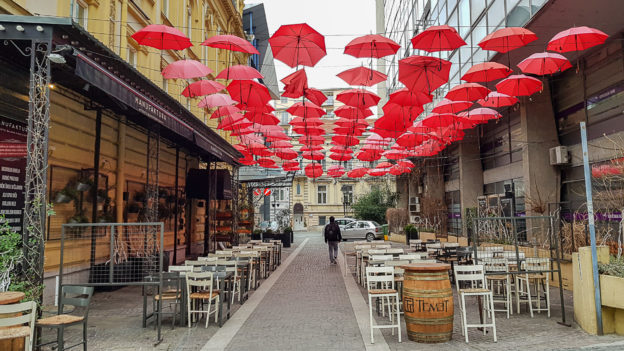While we #stayathome, we experience an amazing speed in developing ways to continue spatial planning work through the digital means we have available. Digital transformation of society and of our lives is actually happening and becomes tangible for each and all of us. In an extraordinary speed do universities switch to 100 % online education, cutting off all physical contacts, excursions and field work and continuing with a diverse range of lectures, seminars and events. Some of these developments will provide role models for future global work and education. However, this is not without new questions for our profession of spatial planning.
Our approach to planning is used to work with all of our five senses. A full experience of a place includes seeing, hearing, smelling, tasting and touching. Up to now, the major belief was that we have to visit a place to change it. Or at least to interact with many people directly who use it. In short: to get a dense, personal and necessarily subjective idea about a place. Corona now means that we lack this opportunity. Three years ago, we made an experiment in the city of Essen on sensing urban places. It was the starting point for the endeavor to delineate a planning in a post-growth society, later termed post-growth planning (‘Postwachstumsplanung’) by us. We deliberately started with an approach that had us as individual human beings in the center of understanding future spaces in a yet to be developed post-growth planning. Each of our senses adds to our understanding of a place and we feel a lack if we can only rely upon one of them. People who lack one or more senses develop others more intensively. Might we all be able to do the same and to develop new ways of approaching physical spaces without physical contacts? And work on ideas to transform spaces for dense uses that seem distant from today’s perspective?
Today, we see spaces on our screens: our phones, laptops, tv sets, computers. Physical action is limited in space and especially in social terms – we walk through spaces, but only because they separate our homes from supermarkets. We can also do longer walks or sports, but in our leisure time and not in groups. Many planners cannot just get out and get a personal impression of an unknown square, neighborhood or city. Most importantly, data helps us out as a profession of planners. We search for user counts, for traffic data, for any data that gives us good insights into the environments we are dealing with. We can also watch photos, some videos, maybe drawings. This is known to us, but usually as one part of our work, supplemented with much personal interaction – just look at the whole debate on communicate planning, neighborhoods and civil society action.
At least for the next weeks, we can only reach out to people via emails, online surveys, video calls or alike. A vast amount of more or less helpful surveys has already emerged and targets many of us. We can also listen to ideas and stories through phones, laptops or computers. However, do we really get the full picture of how a place is used? Do people staying at home for one or two weeks still give the same answer to our questions on the use of public spaces, of urban infrastructure, of urban life? And if so, will they still do so after four, five, six weeks in quarantine? Planning continues, though we might have to adjust for physical distancing for more weeks to come. This also implies emergent questions on our human dignity and ways in which we build up our society.
Can we think about better urban (or rural) spaces without smelling, tasting and touching – i. e. actually experiencing them together? I am curious what the current situation will mean for students that we educate today, about planners developing ideas this week, about our future perspective on the usefulness or uselessness of public spaces for dense interaction, surprise and unexpected encounters. How can we keep the base of our existence alive: to live together in common spaces – not only with all their beauty, but with all their contradictions, troubles and inspirations that make planning important, lively and lovely?
I am looking forward to getting inspired by thoughts and ideas.
Title photo: Belgrade, 14 March 2020 (own photo)

Leave a Reply